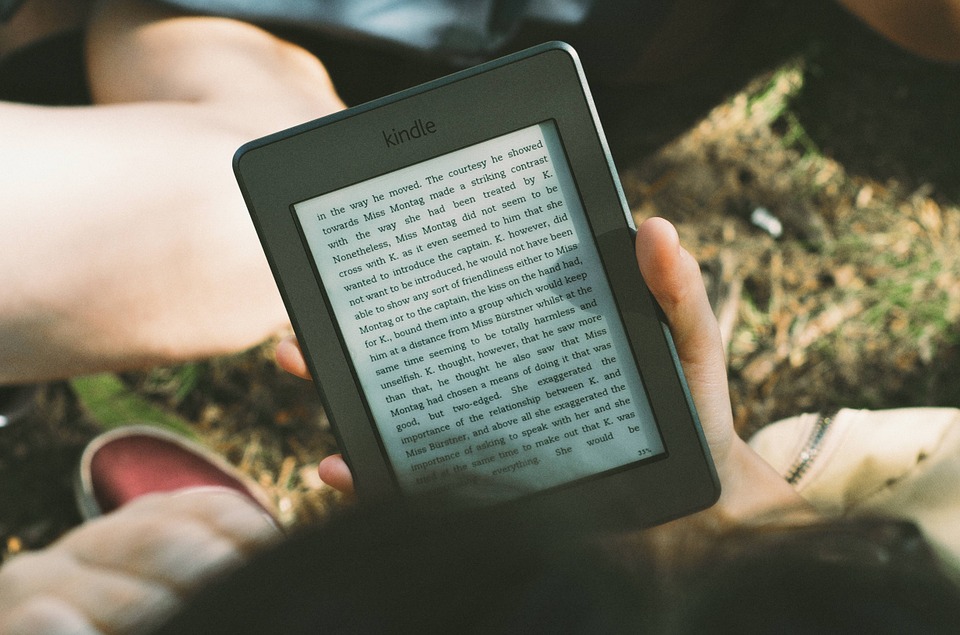For most of my life, I’ve always preferred physical books over e-books. Having an impressive library of books all aligned on shelves, the smell of the books, the ability to have authors sign them if and when I meet them, and the fact that they’re composed of atoms instead of 0s and 1s were all reasons for me preferring physical books. However, in the past year, I’ve come to have a love for e-books and in fact, I now prefer obtaining them over their physical counterparts. Here are some reasons why.
1: Going Electronic Is More Cost Effective
Money has been increasingly tight over the past couple of years, and I need to pinch every penny I can just to get food, water, internet, and gas. My family and I do acrobats to pay as little money as we can. I have found that e-books are generally cheaper than physical books, which makes sense given that e-books are files while effort and resources are expended to glue the books together in the printing factories. Sometimes the Kindle version is half the price of the physical book, sometimes it’s only a few dollars cheaper, and sometimes it’s just a buck or two worth of a difference. In no case, however, has the e-book version been more expensive than the physical book.
Moreover, the fact that buying an e-book is a simple download, there’s no paying for shipping and handling. That also saves on money. I have deemed Kindle books a more cost-effective route. In fact, I’ve done the math and I have found that on average, I can buy twice as many Kindle books as I could physical books. I could buy 2 Kindle books for the same price as 1 physical book.
2: The Text-To-Speech Ability
Given the way my brain is wired, I tend to retain content better if I’m seeing the words and hearing them simultaneously. This isn’t to say I can’t retain it at all if I only get visuals or only get audio, but having the two combined contributes significantly to memorization. I have found that with Kindle books, you get text-to-speech options. On the PC version of the Kindle app, you can activate text-to-speech and a very robotic voice will read the book’s content to you. I did this when I read Aron Yilmaz’ Deliver Us From Evolution?: A Christian Biologist’s In Depth Look Reveals A Surprising Harmony Between Science and God. I used the PC app’s TTS option only because this particular e-book wasn’t compatible with my Echo Dot. With most e-books, The Echo Dot (a.k.a Alexa) can read the books to you if you sync your Kindle account with your Echo Dot. I had Alexa read Lee Strobel’s The Case For Christ – Movie Edition aloud while I read the words on my computer screen. Alexa, unlike most artificial intelligence, has the most human-sounding voice I’ve ever heard from an artificial intelligence. So I’m glad when I can have her read it rather than Microsoft David (or whatever that voice option is called). She still sounds a little bit like an AI, but she’s not nearly as monotonous as others.
Getting Kindle books allows me to hear the book and read the book at the exact same time, contributing to more easy memorization. With physical books, I got this effect simply by reading the book aloud, listening to my own voice as I scanned the pages. But this can strain my voice if I read for long time periods, and I also frequently get a sore throat in the autumnal season for some reason, preventing me from reading aloud for too long. With e-books, I need not ever read aloud to do The Visual/Audio combo technique.
Moreover, there are some days when I don’t feel like reading at all, but instead, would like to just kick back and merely listen. I don’t do this very often though. I mostly do the visual/audio combination technique mentioned above, for the reasons already said.
3: A Library In My Pocket
Given that all your Kindle books are stored on your account, you don’t have to worry about losing them if your machine crashes. They’re in the cloud. This also not only makes it less likely that you’ll lose your entire library, but it also means you can take all of your books everywhere you go. All you need to do is download the Kindle app to your phone and/or tablet, and you’re good to go.
4: Sharing With Friends Who Live Long Distances
The majority of my friends who are interested in the things I read (apologetics, theology, science, philosophy) are online. The Kindle App allows you, through your Amazon account, to e-mail one of your Kindle books to another person’s account for an X amount of time. Once they’re done with it, or once the book reaches its due date, it will disappear off of your account and re-appear back on your friend’s.
As is obvious, it’s easier to lend and borrow e-books than physical ones with people who don’t live within driving distance. And the way the lending system is set up, you’re guaranteed to get it back. It’ll disappear off of their account and back on your own, and they won’t lose track of its physical location.
5: Quoting Authors Is Much Easier
If I pull up a book on the PC version of the Kindle app, I can actually copy and paste sections of text. As a writer, this is important to me. If I want to quote an author from one of my physical books, I have to open the page, set the book on my lap, and then look at the page, type some of the text, look back at the page, type some more text, and repeat this until the section of text I wish to cite is in the word processor. With Kindle books, I don’t have to do that. I can simply copy and paste.
Moreover, and this is what I really like, the citation information appears directly under the text as soon as you paste it! This means that once I copy/paste the text I want to quote, I already have a footnote readymade. This December, I have a blog post on the reliability of the gospels’ Christmas narratives, and you’ll see that I quote John McRay from Lee Strobel’s The Case For Christ – Movie Edition. That quote from McRay was copy/pasted directly from the e-book, and its corresponding footnote was ready-made as soon as I pasted the text.
Conclusion
There are some downsides to e-books. For example, I’m one of the weird people who like to smell books. I like that new book smell as well as the old book smell. No e-book has a scent. Moreover, when I go to Christian Apologetics conferences, I cannot have people sign my e-books. I can have them sign physical books. Also, the act of downloading doesn’t generate nearly the excitement of going to the mailbox and finding out my book has arrived. Additionally, as a popular meme proclaims, bookshelves of physical books will always be more impressive than a Kindle library.
Nevertheless, I think the upsides to e-books are well worth it. By the way, anyone wanting to go Christmas shopping for me, send me one of those Amazon Kindle gift cards that say “Happy Reading” in big letters. Just lots and lots of gift cards. 🙂
Discover more from Cerebral Faith
Subscribe to get the latest posts sent to your email.



